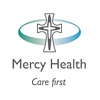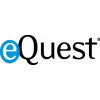At Bon Secours Mercy Health, we are dedicated to continually improving health care quality, safety and cost effectiveness.
Our hospitals, care sites and clinicians are recognized for clinical and operational excellence.
Full Time - 36hr / week - Night Shift - 7 : 00p - 7 : 30a
Every other weekend / holiday
$15,000 Sign on Bonus for RNs with 1+ years of experience
Summary of Primary Function / General Purpose of Position
The Emergency Department (ED) Registered Nurse (RN) provides, coordinates, plans, and evaluates nursing care, and supervises licensed and unlicensed associates in nursing care delivery within established nursing procedures, professional standards, and organizational policies / philosophies.
The ED RN demonstrates the ability to care for a group of patients in a fast-paced, high intensity setting as part of an interprofessional team focused on achieving the best individual patient and population outcomes.
The ED RN is responsible for modeling core cultural and safety behaviors to eliminate preventable harm, ensure worker safety and a safe, high quality experience of care.
Essential Job Functions
- In collaboration with the interdisciplinary care team, conducts initial and ongoing patient assessment, analyzes assessment data, creates a plan of care, implements treatment and evaluates treatment effectiveness.
- Administers medications in a safe manner consistent with the State of Practice and Bon Secours Mercy Health policies and procedures.
- Serves as point of contact for patients' care coordination throughout hospital departments.
- Acts as a patient safety advocate by participating in ongoing quality improvement in the department.
- Manages and meets the physical and emotional demands of emergency nursing care.
- Applies knowledge of contemporary emergency nursing practice and future innovations.
- Applies nursing practice to the care of individuals across the lifespan with perceived or actual physical or emotional alterations, ranging from non-urgent to life threatening that are undiagnosed or require further interventions;
care practices include, but are not limited to, medical illness, trauma care, pediatric care, gerontologic care, injury prevention, women's health, mental health issues, and life and limb saving measures.
- Collaborates with outside agencies in coordinating care (e. g. protective agencies and law enforcement, Local Crisis, Forensics, EMS, transfer centers, pharmacies).
- Understands and considers while providing care that emergency nursing care is episodic, primary, typically short-term, and occurs in a variety of settings.
- BSMH nurses are expected to practice and deliver care in accordance with the core concepts and intention of the BSMH Nursing Professional Practice Model.
This document is not an exhaustive list of all responsibilities, skills, duties, requirements, or working conditions associated with the job.
Employees may be required to perform other job-related duties as required by their supervisor, subject to reasonable accommodation.
Licensing / Certification
Current RN License in the state in which they are working or covered by compact (required)
BLS Basic Life Support (preferred upon hire, must obtain from approved source prior to direct patient care)
ACLS Advanced Cardiac Life Support (preferred)
PALS Pediatric Advanced Life Support (preferred)
NPR Neonatal Resuscitation Program (preferred)
TNCC Trauma Nursing Core Course (preferred)
Education
Bachelor of Science Nursing (preferred)
Work Experience
1 year of RN experience (required)
Recent Emergency Department or Critical Care experience (preferred)
Training
EPIC Electronic Health Record (EHR) training (preferred)
Skills
- Assigns patient care according to the nursing skill, knowledge, and scope of practice of staff.
- Orients, facilitates learning experience, and provides education (based upon quality improvement indicators, outcomes, and implementation) to nursing staff and others.
- Possesses clinical knowledge, skills, and competency to provide evidence-based patient care in accordance with the current standards of practice, policy and procedure, and BSMH mission.
- Performs comprehensive assessment of patient's clinical condition and psychosocial needs of the patient and their supportive resources.
- Safely and efficiently develops, implements, and prioritizes plan of care.
- Application of the nursing process in patient care delivery.
- Assesses patient's physical and emotional responses to treatment to evaluate effectiveness of intervention and patient outcomes;
revises plan of care accordingly.
- Assists patient and family in coping with patient's illness.
- Collaborates with others in the delivery of coordinated patient care.
- Strong interpersonal and verbal / written communication skills.
- Applies cultural diversity and inclusion principles when caring for patients and their support resources.
- Recognizes own limitations and seeks assistance and acquires information to perform safely.
- Advances personal and professional growth through participation in educational programs, current literature, in-services, and workshops.
- Exhibits professionalism through accountability for own and delegated actions.
- Integrates cost-effective measures into practice and models effective stewardship of available resources.
- Practices self-care and cultivates resilience in conflict and difficult circumstances.
- Protects the safety and privacy of all persons.
- Understanding and utilization of office and clinical technologies.
- Ability to communicate with patients in a manner they can understand considering their personal preferences.
- Compassionate, relationship-based approach to help find meaning in illness, suffering, pain, and existence.
- Remains calm, adaptive, and collective during an emergency.
- Applies the nursing process with patients in a variety of illness or injury in all ages and populations requiring triage and prioritization, stabilization, resuscitation, crisis intervention, disaster preparedness / emergency management.
- Can pivot focus quickly using critical decisions to match the most crucial needs at any moment.
- Lifesaving equipment (i. e., hypothermia devices, Hand free - CPR, rapid infusers, invasive monitoring, etc.)
Working Conditions
Periods of high stress and fluctuating workloads may occur
May be exposed to physical altercations and verbal abuse
May be required to use physical restraints
May be exposed to high noise levels and bright lights
May be exposed to limited hazardous
Compensation Information :
$0.0 / - $0.0 /
Starting At : 0.0
Up To : 0.0






